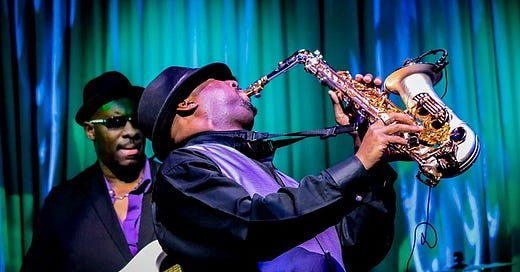One of my most unforgettable experiences was going to the symphony hall and listening to Beethoven's 9th Symphony. It is widely regarded as one of the greatest works of classical music ever created. Composed between 1818 and 1824, it is a monumental piece that features four movements and a choir singing Friedrich Schiller's "Ode to Joy" in the final movement. The Symphony departed from the traditional classical style. It introduced new elements, such as using a choir and vocal soloists. It is a powerful and emotional work that explores themes of human triumph and brotherhood. The Ninth Symphony has had a lasting impact on music and culture and continues to inspire audiences worldwide today.
Beethoven was mostly deaf when he composed the Ninth Symphony. Despite his hearing loss, he created this masterpiece by feeling the vibrations of the music through his body and using his memory of sounds. It is a testament to his genius and perseverance.
It is not only classical music that is powerful. Every genre of music is inspirational, and each person has their preference. Today, the most popular genres include rock, indie, blues, pop, hip-hop, country, jazz, blues, classical, and electronic. Each one has the distinct characteristics that make it appealing to different audiences. Some people may prefer the upbeat tempo of pop music, while others may enjoy the soulful melodies of blues. Regardless of your preferences, there will surely be a music genre that speaks to you and resonates with your soul.
Music is powerful. Have you noticed that you experience all types of emotions and physical sensations as you listen to music? That is true for all of us. Music also stimulates memories, so therapists use it with Alzheimer's patients.
Music stimulates the memories each of us has of past times and experiences. I was a teenager when my brother, who is six years older, went to jazz concerts at Lewisohn Stadium at City College in upper Manhattan. It was an outdoor venue, and everyone sat on folding chairs on the lawn facing the stage. We sat in awe as we watched and listened to Louie Armstrong, known as "Satchmo," and his jazz band perform. On another unforgettable occasion, we saw and listened to Ella Fitzgerald perform. When the concert was supposed to end and as the audience was leaving, crowds of us stood in front of the stage begging her to come out and continue, and what a surprise it was when she did just that. She continued to sing song after song, and all of us were enchanted. Then she told us she had to stop because labor union regulations demanded that the workers clean up and leave.
Music holds significant emotional importance in our lives. Throughout history, it has played a fundamental role in expressing and evoking a range of emotions connecting people on a profound level. Whether we find solace in a comforting melody or energize ourselves through an upbeat rhythm, music can touch our souls and elicit deep emotional responses.
Some songs transport me back to special times during our lives together. Songs by Carly Simon are amazing in their ability to stir memories, happiness, and terrible sadness because she passed away.
One of the key reasons for the emotional impact of music is its ability to transcend language barriers and cultural differences. Music speaks to us directly, bypassing the need for words to convey its message. It has the incredible power to communicate complex emotions that words alone often struggle to express.
Moreover, music has a cathartic effect on our emotions. It can provide an outlet for our deepest feelings, allowing us to release pent-up emotions and find comfort in the process. It can bring healing during sadness or grief and amplify our joy during happy moments. The melodic interplay of instruments and lyrics can create a sense of connection, reminding us that we are not alone in our emotional journeys.
Another fascinating aspect of music is how it can shape and enhance our moods. We often turn to music to uplift us when we're feeling down or to calm our minds when we're anxious. The composition's tempo, pitch, and harmony can influence our physiological responses, triggering the release of dopamine and endorphins – the feel-good chemicals in our brains. That explains why an empowering anthem can boost our confidence, while a soothing melody can ease our stress and promote relaxation.
Additionally, music serves as a powerful tool for personal expression. Artists share their emotional landscapes by creating and performing music, allowing listeners to form connections based on shared experiences. This sense of shared understanding can foster empathy and solidarity, creating a profound sense of belonging within a larger community.
In conclusion, music's emotional importance in our lives cannot be underestimated. It is a universal language that transcends barriers, evoking emotions, connecting people, and providing solace or joy. Music can touch our hearts and souls in ways few other art forms can achieve, whether through the nostalgic melodies that transport us or the cathartic release it offers during difficult times.





